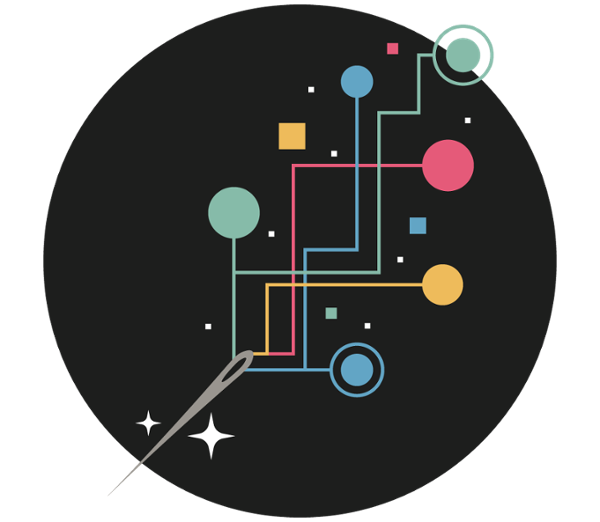It’s late. You’re staring down a mountain of deposition transcripts, a color-coded timeline, and more PDFs than hours in the day. You’re trying to polish cross-examination prep before calling it a night. Sound familiar?
These exhausting—and let’s be honest, sometimes exhilarating—moments capture why case strategy matters so much. It’s the crux of litigation, the invisible thread that ties scattered facts into a persuasive, defensible story. Historically, creating a solid case strategy has meant spreadsheets, sticky notes, long hours, and pure grit and tenacity. But generative AI is ushering in a new and better way—not to replace attorneys, but to empower smarter, more fluid case development.
Today, we’ll give a high-level overview of the core legal data challenges of modern case strategy, and how generative AI, like Relativity aiR for Case Strategy, can help solve them.
First, Let’s Level Set: What Do We Mean by Case Strategy?
“Case strategy” is the intentional, ongoing effort to make sense of sprawling legal evidence to craft a compelling narrative. It means identifying essential facts, spotting what others might miss, and building a story that leverages the facts in your investigation or your client’s best interest.
Of course, a solid case strategy is never static. You can’t just “set it and forget it.” As your case evolves, the narrative will shift, and your strategy has to move with it. That means testing whether the evidence still holds or whether a new fact cracks an old argument.
Why Case Strategy Is So Hard Today
Though case strategy has always been the bread and butter of litigation, even the most experienced attorneys struggle with the demands of modern data. Here are some of the most common headaches:
1. Legal Data Overload
Emails, chat logs, transcripts, contracts, meeting notes, depositions—cases today generate volumes of complex data. Pulling together a coherent story from all that is time-consuming and prone to errors.
2. The Fear of Missing Something
Every legal professional has had that late-night worry: what if there’s a critical document or communication hidden somewhere that could change everything? That fear intensifies when facts emerge late, and when your case narrative depends on sewing together so many threads.
3. Inconsistency and Human Fatigue
When multiple people are working on the same themes or documents, different perspectives or fatigue can lead to inconsistent summaries, overlooked connections, or gaps in narrative logic. That inconsistency may show up later when it’s time to argue the case.
4. Siloed Workflows
Often, review teams, associates, litigation support, and partners are each operating in their own lanes, without a unified view. That separation slows momentum and increases the risk that key insights get missed.
Together, these challenges don’t just slow teams down—they put the strength of your narrative at risk.
How Can Generative AI Improve Case Strategy?
We’ve seen the effect generative AI has had on review, with real legal teams seeing some astounding results. Case strategy is the next legal discipline ripe and ready for AI.
Advantages of Generative AI for Case Strategy:
-
Provides Quicker Deposition Prep and Analysis
Depositions are notoriously laborious. But AI digests transcripts, generates witness summaries, drafts deposition outlines, and even helps find every place a topic was discussed across multiple sessions. That saves hours (even days) of manual labor—and frees attorneys to focus on more important work.
-
Eliminates Redundant Work
Every time your team revisits the same facts or documents, you risk duplicating effort. AI ingests your evidence and surfaces key facts early, so your team doesn’t re-do the same work over and over again. That means more headspace for crafting arguments and less time flagging what’s already been flagged.
-
Collapses Silos Through Shared Intelligence
With AI-powered summaries, chronologies, and facts, everyone on the team can work off the same shared intelligence.
-
Uncovers Hidden Connections
AI detects relationships, themes, and patterns that manual review might miss—linking actors, events, and documents in non-obvious ways. This helps legal teams anticipate opposing moves, spot weak spots in their theory, and pivot early.
-
Ensures Confidence, Consistency, and Scalability
the biggest benefit is the psychological one: knowing your narrative is grounded in verifiable evidence. When you can trust AI-backed outlines, chronologies, and summaries, you spend less time second-guessing your strategy.
What to Look for in AI for Case Strategy
Let’s be real: Like humans, AI isn’t always perfect. And not all tools are created equally.
There’s always the risk of hallucinations—and the last thing you need is your tool inventing a quote or misattributing testimony. Privacy is also non-negotiable; your tools must protect client data. Full stop. And then there’s the issue of explainability; if you can’t trace a conclusion back to the source, it’s no good in court.
That’s why we built Relativity aiR for Case Strategy differently. Every insight is traceable, security is built in, and explainability is a core feature—not an afterthought. It’s tech that works the way legal teams do: strategically, securely, and defensibly.
The bottom line: AI is here, and ready for you to use. Just remember: the goal isn’t to replace human expertise—it’s to amplify it. You still run the case. AI just helps you run it better.
Graphics for this article were created by Kael Rose.












